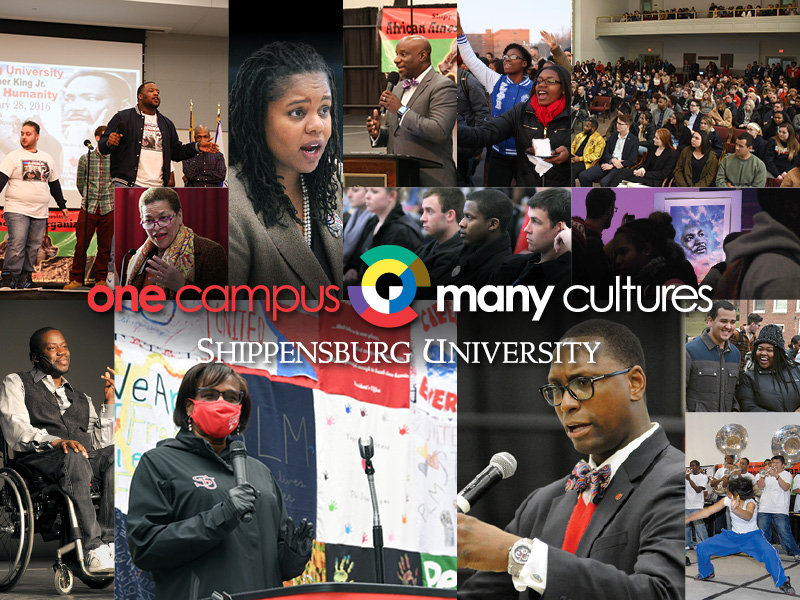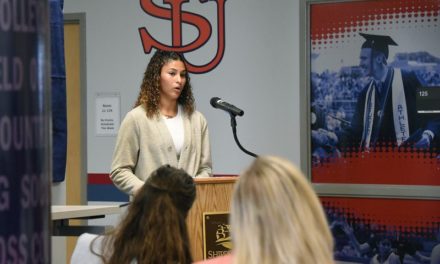Becoming the 17th President of Shippensburg University has been one of the highlights of my professional life. I knew the world would be watching. My goal was to make the university a place where students come first, scholars are born, friendships last forever, family traditions endure, and graduates were prepared to make a positive and lasting impact on their communities. As an aside, I had secret hopes that as the first woman and the first African-American President of Shippensburg, I would inspire the entire campus community to strive to break through ceilings in pursuit of academic excellence. As I often say to my executive management team, “We have to do what is best for our students,” and in these moments when the country and, by extension the campus community, continues to roil in racial tumult, we can look back on our achievements over the last three and a half years as a roadmap to move ahead in kindness and love to live our ideals of diversity, inclusion, and equity.
At Shippensburg University, we are committed to inclusive excellence and to ensuring that all of us in our community are welcomed as part of the Ship family. As we celebrate Black History Month in February, our commitment to inclusive excellence pushes us to continually reflect on our hard work to lead and serve in times of racial reckoning, discrimination, and social inequities. We have formed an Anti-Racism Institute, renovated the home of Multicultural Student Affairs, supported our student-led inaugural Diversity Week, built our Ship Cuts providing barber services for all, created our Center for Emerging Scholars, established the first Chief Diversity Officer Executive level position at the University, launched the Black and Brown Male Initiative to identify and then tackle challenges experienced by men of color on campus, sponsored courageous conversations training for a group of faculty and staff to host conversations about race on campus, and created the Black Male Symposium for ourselves and our sister institutions in PASSHE. In addition to building infrastructure and services to support students of color, we have engaged in and continue to engage in meaningful and courageous conversations to expand our understanding of each other and recognize the diversity of experiences and perspectives that are present on Ship’s campus and in our community.
We are committed to hearing from all of our students, and we have prioritized that by hosting our regular President’s Hour in the residence halls, creating opportunities for students of color to discuss their experiences at Shippensburg University and in the current climate of the United States of America, and continuing to prioritize the recruitment of students from diverse backgrounds through our summer programs, Gear-Up grant initiatives, Place for You Program, and Mi Casa Program. We have a devoted student success team that is deeply committed to supporting our students of color and underserved students in the local community who are disadvantaged due to the citizenship status of their families as they are welcomed to campus.
Our dedication to inclusive excellence has included hosting Shifting the Tone Conversations with our staff to ensure we are positively communicating with students and families in a way that honors their cultural context. Our Chief Diversity Officer has hosted monthly courageous conversations with our Council of Trustees and many of our faculty read “So You Want to Talk About Race” and will soon engage in discussions about the book and how it impacts their roles as teachers, advisors, and mentors and active citizens. As I pause and reflect on all of our hard work, I am encouraged that we are meeting the goals I set for myself when I became president of Shippensburg University, and I am deeply appreciative to everyone across campus and in the community who partners with us on all of these initiatives to work towards our commitment to diversity and inclusion on campus.
With this recognition of our hard work and progress, I am also reminded of the work we still need to do and of the ways in which our students, faculty, and staff of color still experience moments of discrimination and marginalization. I am also aware of spaces in which some of us experience frustration at the pace of change or uneasiness about the racial tensions in our country and on our campus. Yet, I know our discomfort, our anxiety, and our frustration call us to action. These feelings disrupt our ways of being and knowing and invite us to think differently, act differently, and engage differently. James Baldwin captured perfectly the next step in our ongoing commitment to diversity and inclusion at Shippensburg University when he stated, “You cannot fix what you will not face.” We move forward prepared to bravely face the work we must continue to achieve a fully inclusive and diverse community for learning.
Excellence is not static. It is dynamic. Achieving inclusive excellence means constant reexamination of our efforts and practices. In the face of fear, frustration, and discomfort, we are asked to translate our values of inclusion and diversity consciousness into action consistently. An essential purpose of higher education is to cultivate students’ development as empathic and civically engaged critical thinkers who positively transform the communities in which they live and work. At Shippensburg University, we take this work seriously and remain deeply committed.
“We must do what is best for our students,” and so, our work is lifted by hope. Hope for a better tomorrow makes the hard work of today meaningful and sustainable. In the words of Audre Lourde, “In our world, divide and conquer must become define and empower.” This Black History Month, we remind all who will engage that we are committed to work together to collectively define our challenges and empower ourselves to create a future that ensures our students are leading our communities as empathic, inclusive, and transformative citizens. We recognize that our work is as necessary as it is challenging, and that we will achieve our goals faster and farther if we do this work together. We will not be deterred.
Sincerely,
Laurie A. Carter



